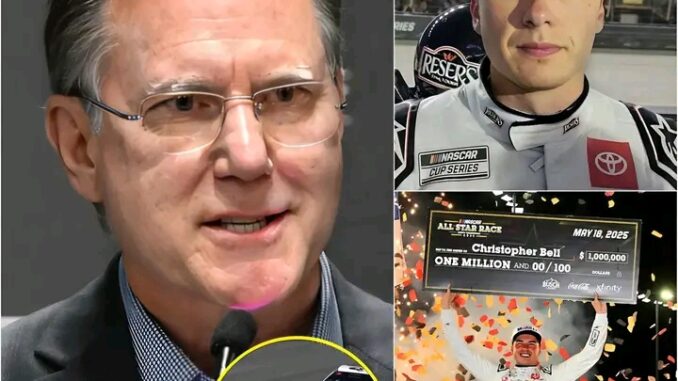
NASCAR has just issued a significant penalty against Christopher Bell and Joe Gibbs Racing following controversy in Las Vegas. Bell, who was set to start 13th at the Pennzoil 400 on March 16, was forced to relinquish his qualifying position after NASCAR discovered unauthorized modifications to the throttle body on his No. 20 Toyota Camry shortly after qualifying. As a result, Bell was penalized to the rear of the field—a hefty setback for a driver vying to make history with a fourth consecutive Cup Series win.
Though not related to the infamous wall‑ride controversy at Martinsville last November, this penalty underscores NASCAR’s strict enforcement of technical regulations, particularly regarding engine and throttle-body components. Bell’s team had replaced the unit post-qualifying, presumably to enhance performance under race conditions. NASCAR’s decision to dock his starting position reaffirms its zero‑tolerance stance on unapproved component changes, even if done by mistake or strategic oversight .
This incident casts a new shadow over Bell’s season. Riding high with victories at Atlanta, COTA, and Phoenix, he came to Las Vegas with eyes on joining NASCAR elite—drivers like Yarborough, Earnhardt, Johnson—who have claimed four straight wins. Having already felt the sting of the Martinsville penalty last fall, Bell now faces additional pressure to avoid errors. The throttle-body infraction, while mechanical, carries as much weight in NASCAR’s rule book as wheel changes or aero violations.
In Bell’s wake, observers are calling for a deeper understanding of NASCAR’s technical regulations. One Reddit comment previously echoed frustration with rule ambiguity:“I feel cheated… it forced our hands to do what we did” l reflecting broader concerns that even minor changes can have major consequences.
Leave a Reply